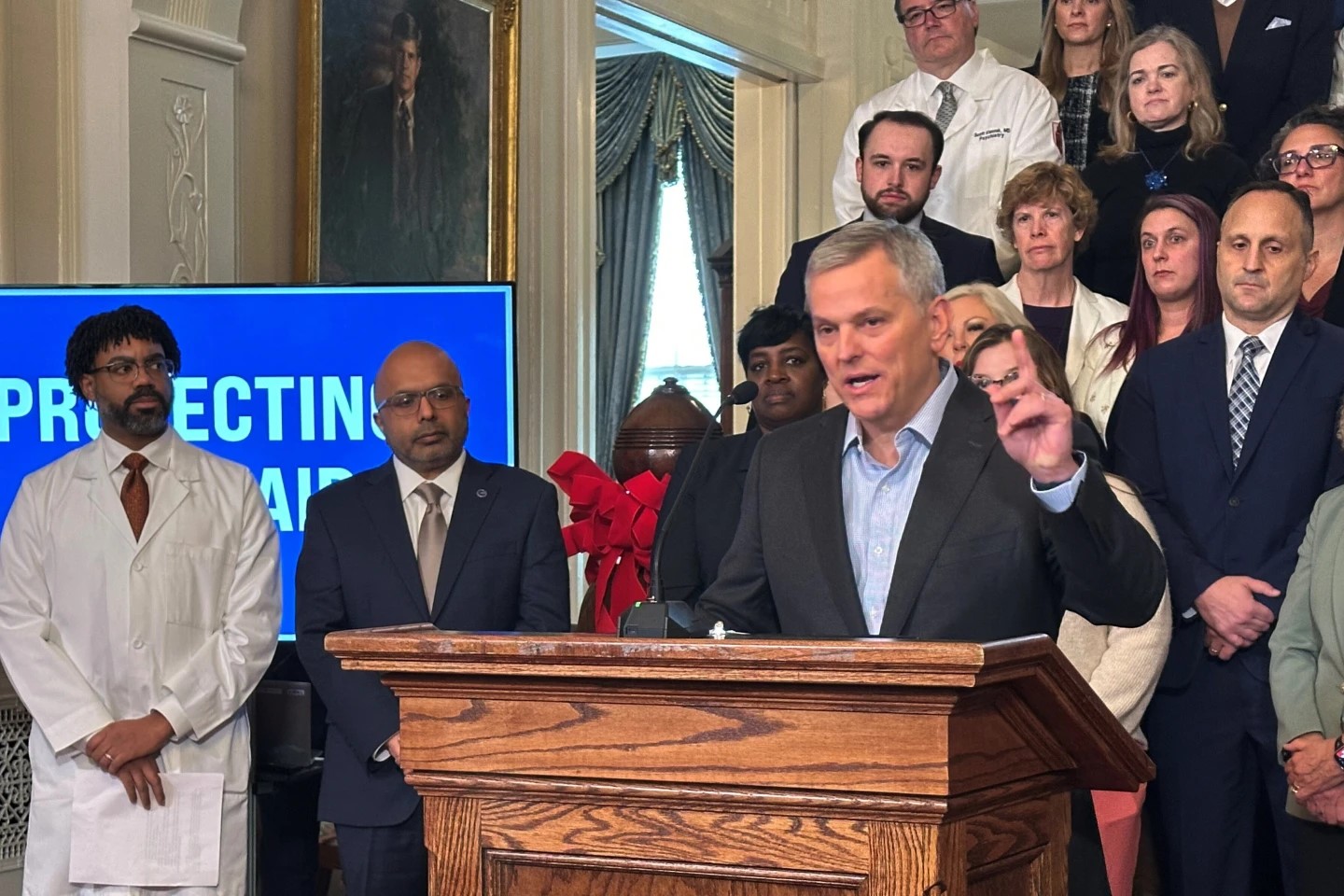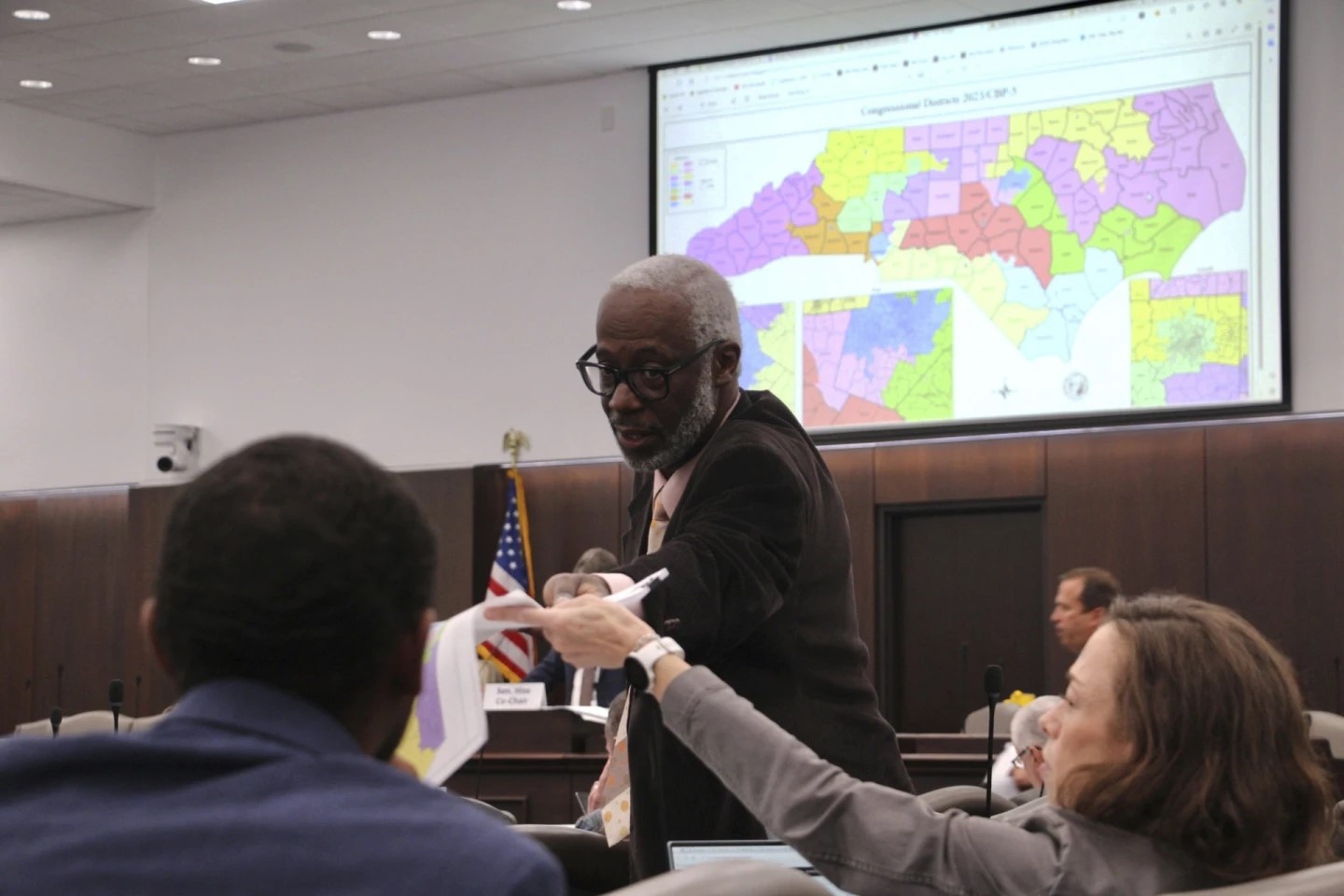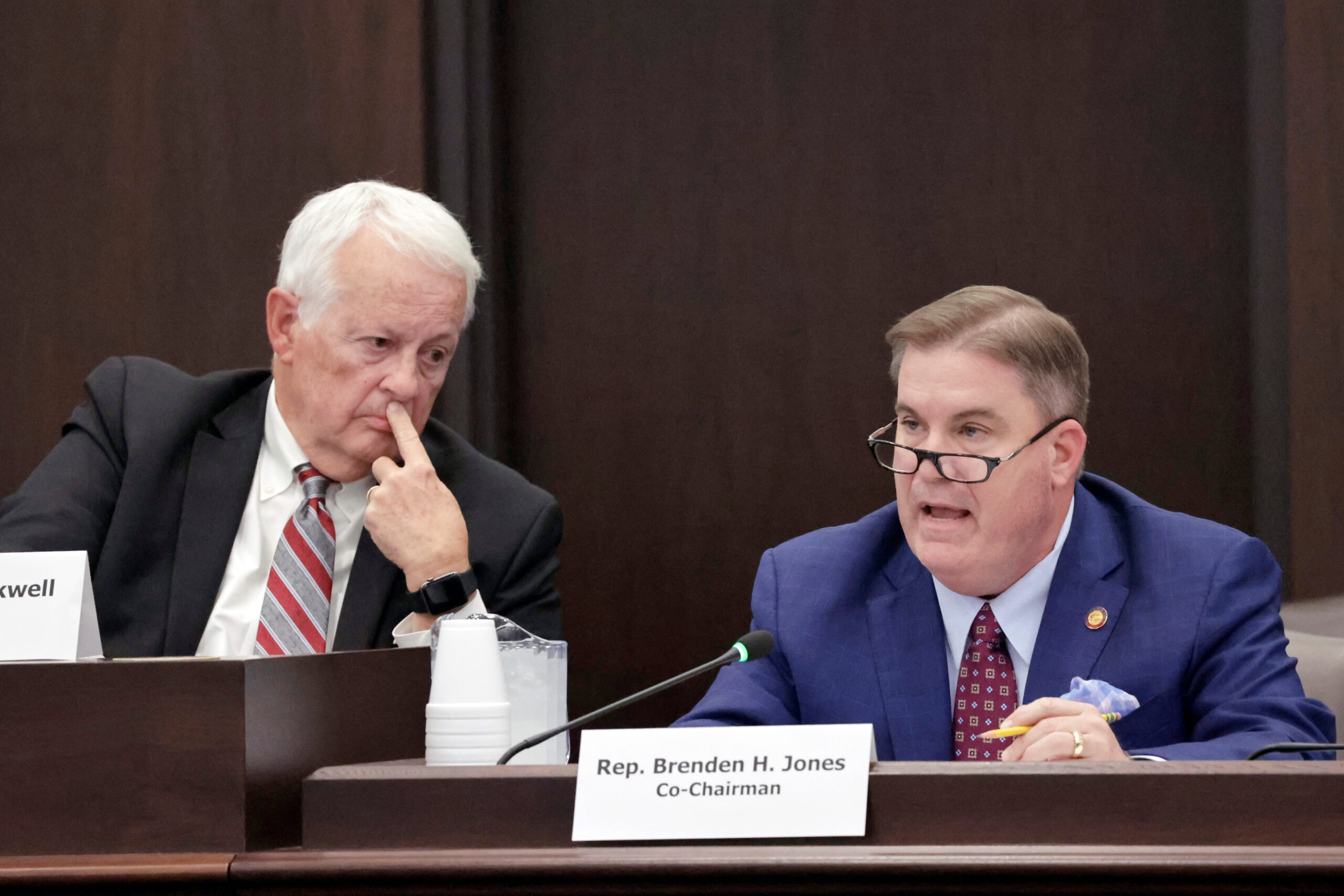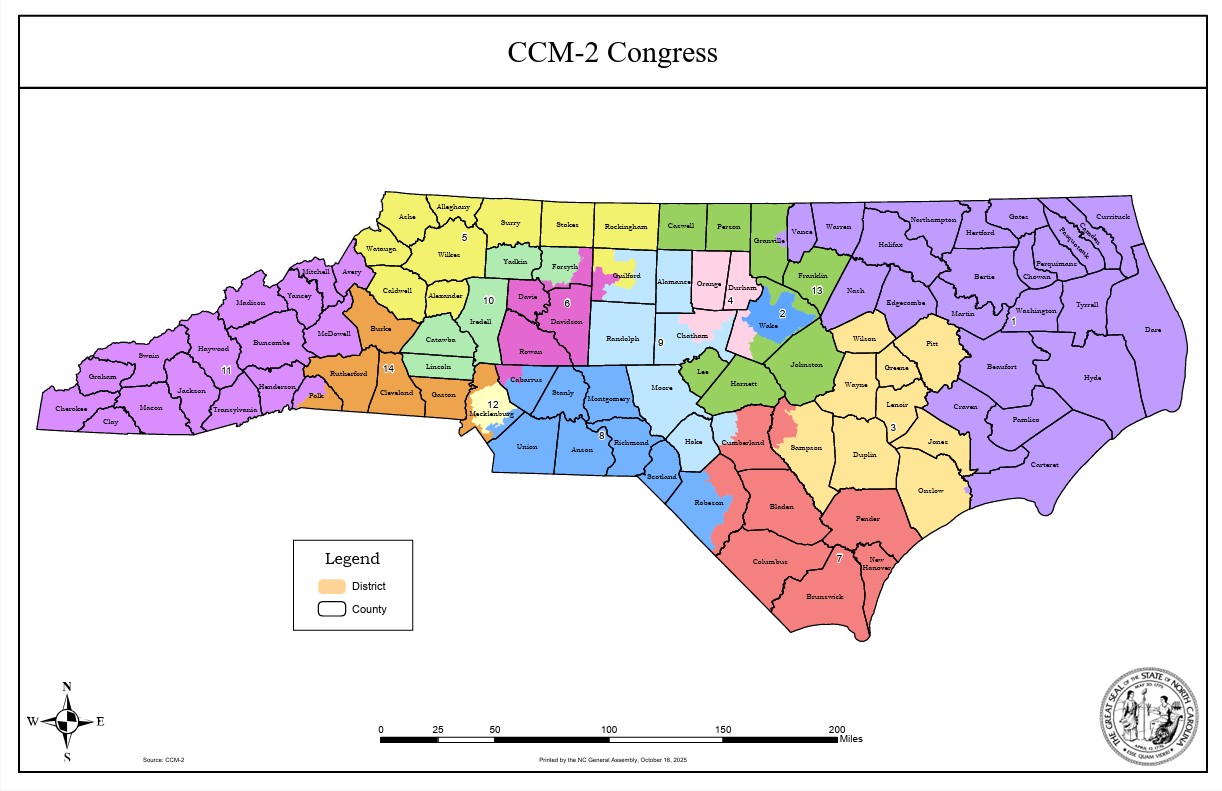North Carolina legislators can claim for themselves the right to reject a governor’s choices for top jobs like collecting taxes or registering automobiles, lawyers defending a state law told the state Supreme Court on Tuesday.
The law doesn’t violate the constitutional principle that government powers be separated and balanced because legislators can create or alter state agencies, so they have a right to consent to who runs them, lawyers for the Republican-led General Assembly said.
Democratic Gov. Roy Cooper’s eight top aides were all approved last year, so the high court should dismiss the governor’s argument that the law is unconstitutional and can’t work because it limits how well Cooper can do his job, attorneys for GOP legislators told the justices.
“By all of his nominees being confirmed and being the first choice, you can see that there is a set of circumstances, i.e. the current circumstances, where there is a constitutional balance of power that’s appropriate,” attorney Martin Warf said.
Lower courts have twice determined North Carolina lawmakers have the power to give themselves the last word on confirming a governor’s choices to run agencies that manage veteran’s affairs, business recruiting, environmental quality, health programs and prisons.
Cooper’s lawyers argued those decisions were wrong because the law passed by the legislature within weeks of Cooper beating former GOP Gov. Pat McCrory in 2016 unconstitutionally interferes with the governor’s ability to choose his top deputies.
While the General Assembly does have the power to shape the departments and duties of the state agencies that Cooper oversees, they can’t interfere with how the governor carries out his duties or who he hires to help with that work, Cooper attorney Eric David told the judges.
“The legislature can build the ship. What it can’t do is tell the governor how to steer it,” David said. “That’s why they’ve gone too far.”
Allowing the law to stand would allow lawmakers or even just legislative leaders to argue in the future that they could even appoint the governor’s cabinet secretaries because nothing in the Constitution prevents that, David said. Legislators could use the same logic to pick the law clerks who work for that Supreme Court’s justices, he said.
The law was passed during a 2016 special legislative session that marked the start of Republicans working at nearly every turn to diminish Cooper’s powers. Two constitutional amendments legislators want voters to adopt next month would further swing powers currently held by Cooper toward the legislature. One amendment would change how judicial vacancies are filled and the other would alter how members of the state elections board are chosen.
Related Stories
‹

The Carolinas Emerge as New Population Boom States. Affordability and Lifestyle Drive GrowthWritten by MIKE SCHNEIDER ORLANDO, Fla. (AP) — Move over Florida and Texas. The United States has new hot spots for growth, and they both have Carolina in their name. North Carolina last year attracted more new residents, 84,000 people, from other parts of the country than any other state, a title held by Texas in 2024 and Florida […]

Four-Term North Carolina Gov. Jim Hunt, a Leader in Education Reform, Dies at 88Former Gov. Jim Hunt, a towering figure in North Carolina politics in the late 20th century who helped leaders from both major parties strive for public education reform, died Thursday at the age of 88.

Chapel Hill Educator, Historian and UNC Statistician Freddie Kiger Inducted Into Order of Longleaf PineMembers of the East Chapel Hill Rotary Club surprised Freddie Kiger with his induction into the Order of the Long Leaf Pine during its holiday party on Dec. 5.

North Carolina Gov. Stein Cancels Medicaid Rate Cuts Amid Legal and Legislative BattlesNorth Carolina Democratic Gov. Josh Stein is canceling Medicaid reimbursement rate reductions he initiated over two months ago, preserving in the short term access to care for vulnerable patients.

French Manufacturer Shares Plans to Relocate U.S. Operations to HillsboroughGov. Josh Stein’s office shared the French manufacturing company CITEL is planning on relocating its U.S. business to Hillsborough and will invest $12.5 million in the project.

Federal Judges Uphold Several North Carolina US House Districts Drawn by RepublicansWritten by GARY D. ROBERTSON RALEIGH, N.C. (AP) — Federal judges on Thursday upheld several U.S. House districts that North Carolina Republicans drew in 2023 that helped the GOP gain additional seats the following year. They rejected accusations the lines unlawfully fractured and packed Black voters to weaken their voting power. The order by three judges — […]

On the Porch: Dr. Jim Crawford - October News RoundupThis Week:
Born into a blue collar and agricultural clan in rural Pennsylvania, Dr. Jim Crawford was the first in his family to graduate from college. Earning his PhD from the University of North Carolina, he taught US and World History at several universities in the piedmont North Carolina for several decades. He served as chairman of the Chatham County board of commissioners. He is a firm believer in American democracy and trusts that the constitution will hold firm now as it has in past crises despite the broken, distempered electorate.

North Carolina Adopts New Trump-Backed US House Districts Aimed at Gaining a Republican SeatWritten by GARY D. ROBERTSON RALEIGH, N.C. (AP) — North Carolina Republican legislative leaders completed their remapping of the state’s U.S. House districts on Wednesday, intent on picking up one more seat to help President Donald Trump’s efforts to retain GOP control of Congress in next year’s midterm elections. The new boundaries approved by the […]

Democrats Look to Long Term as North Carolina GOP Redistricting Plan Seeks Another Seat for TrumpDemocrats rallied Tuesday against a new U.S. House map proposed by North Carolina Republicans that would likely reap another GOP seat.

North Carolina GOP’s Proposed Map Seeks to Thwart Democratic Incumbent’s ReelectionNorth Carolina's Republican legislators are offering a redrawn U.S. House district map to help the GOP retain control of Congress.
›











